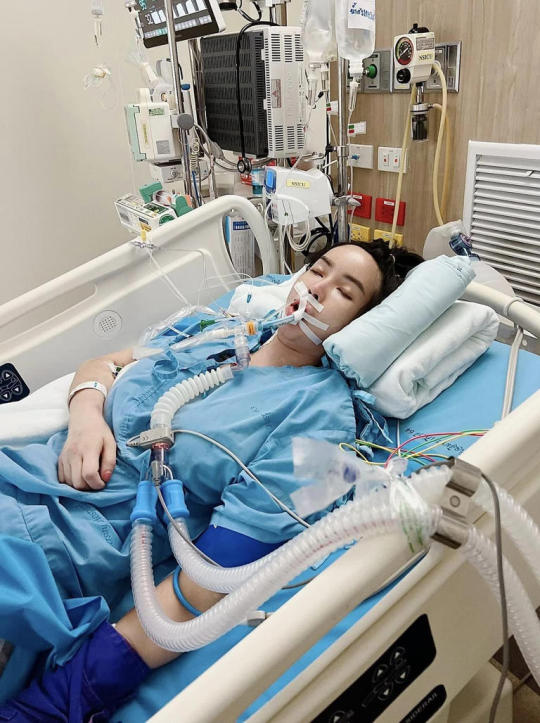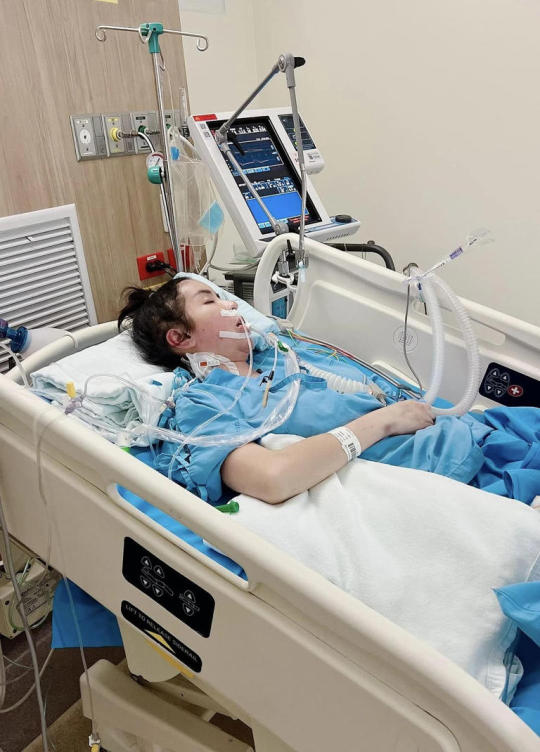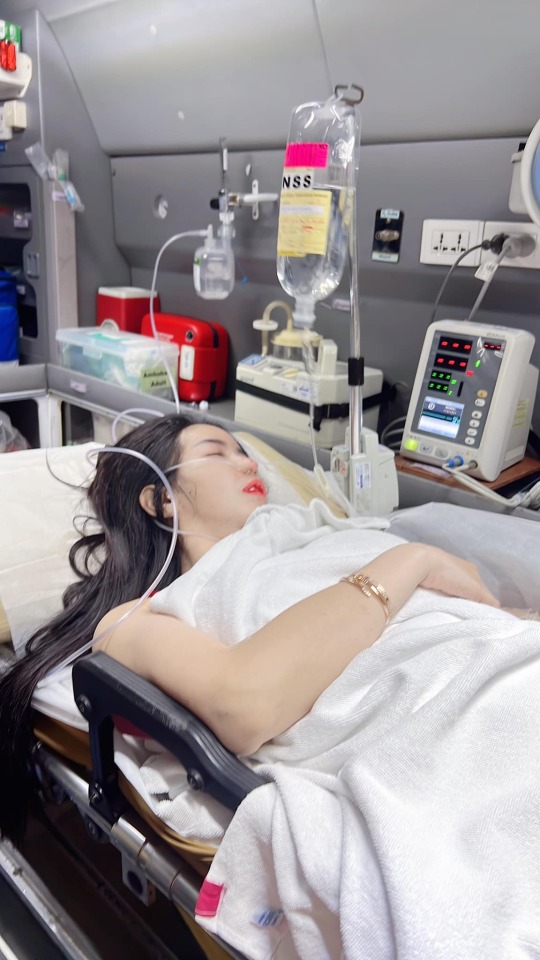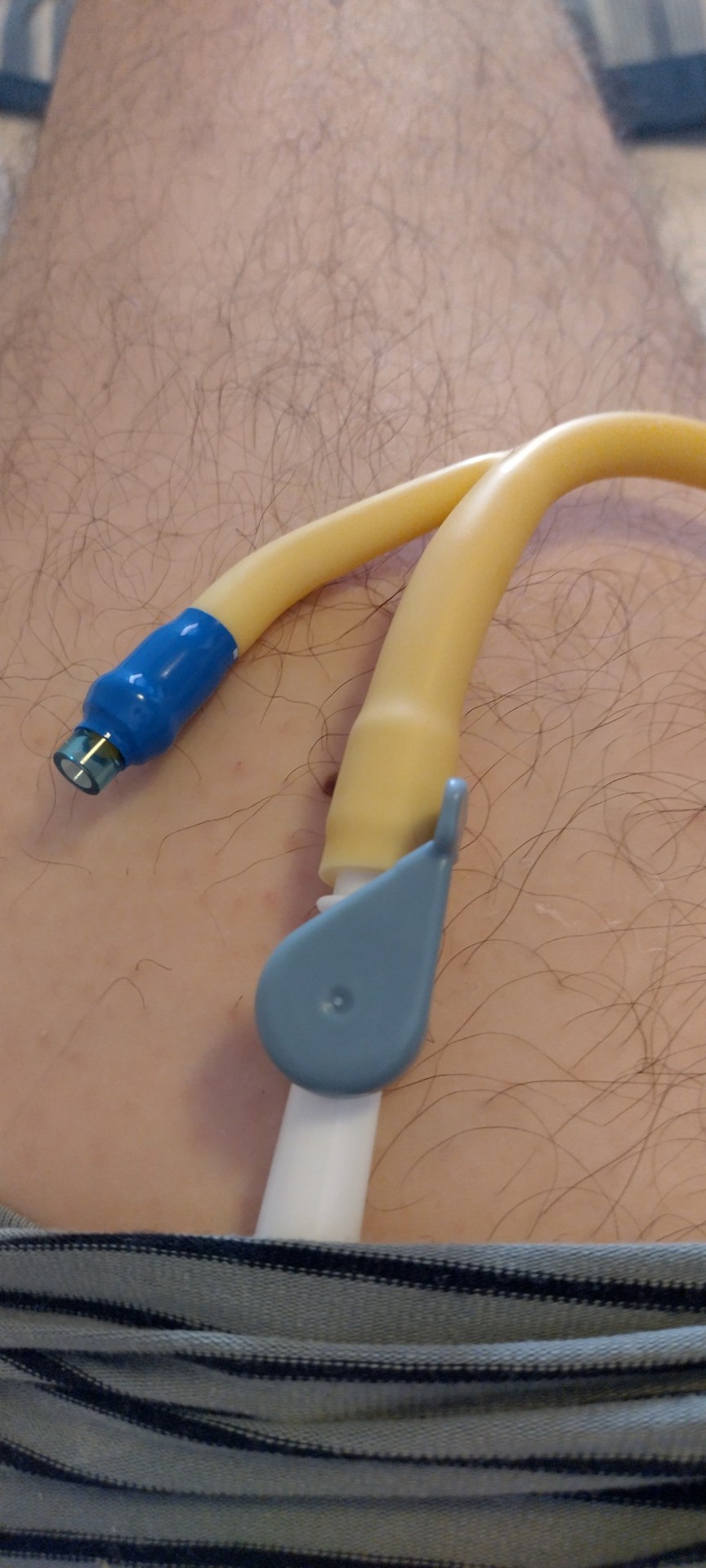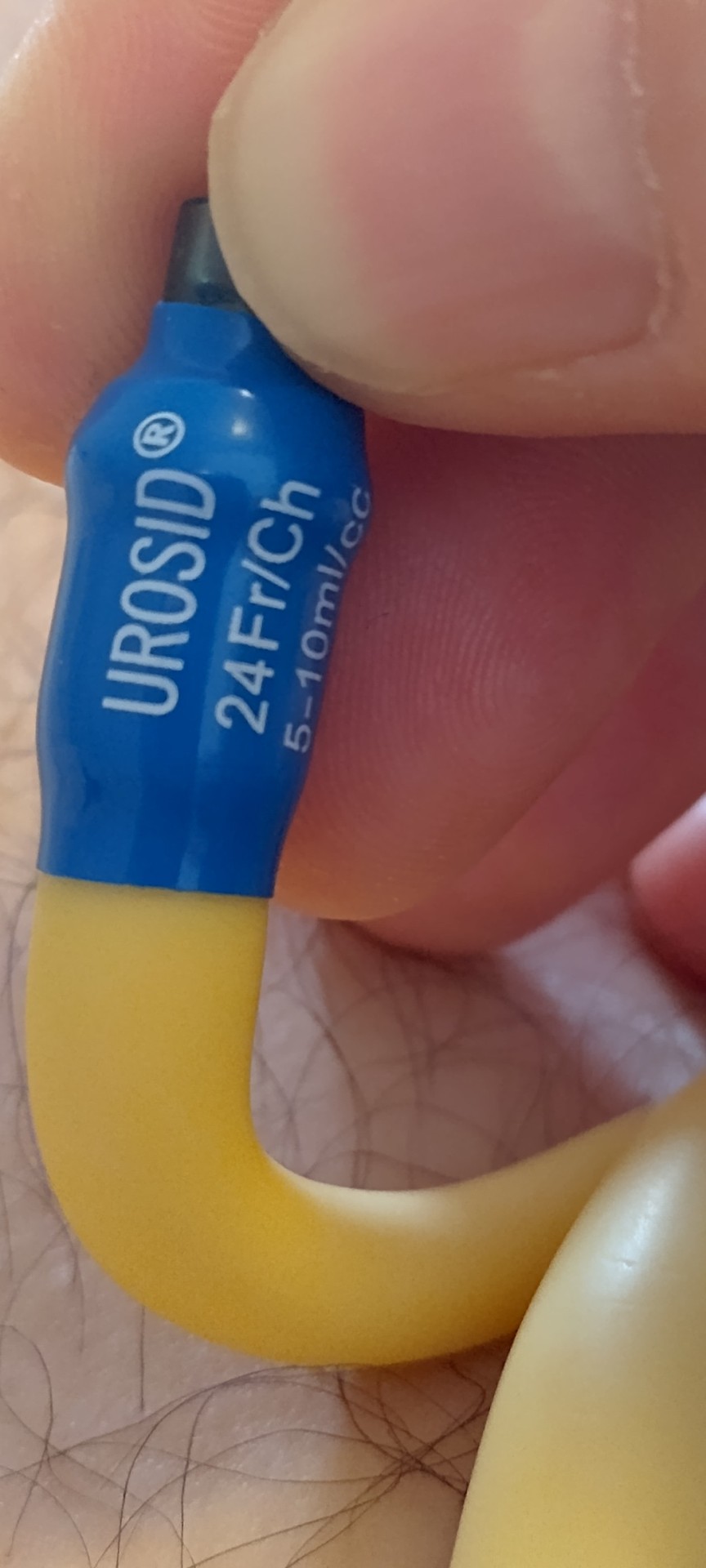Don't wanna be here? Send us removal request.
Text
The Spring Days

The woman lay motionless in the hospital bed, connected to a mechanical ventilator. A long plastic endotracheal tube, secured by a special fixator, extended deep into the airways, providing mandatory ventilation. Consciousness was suppressed by sedative medications, necessary to synchronize breathing with the ventilator. Breathing rate and blood oxygen saturation were displayed on a monitor that glowed green in the dark room.

She felt completely helpless, confined to the bed, unable to even lift her arm, and lay still, watching as her chest rose and fell rhythmically with the machine's breathing.
Every day spent connected to the ventilator was filled with hope. She dreamed of the moment when she could take a deep breath again and feel the air fill her lungs. And finally, that dream came true.

Extubation brought not only relief but also the long-awaited freedom to breathe on her own. Although the oxygen cannula still gently touched her face, helping her breathe, the feeling of relief was immense.

While in the intensive care unit, the woman felt disoriented due to difficulty breathing. However, thanks to the confident actions of the nurse who placed an oxygen mask on her, the patient's condition improved. Nevertheless, after a few hours, her breathing became difficult again, and the doctors were forced to conclude that she still could not breathe on her own. She had to be reconnected to the ventilator. The woman was deeply disappointed, feeling helpless and falling into depression.

Doctors induced her into a medically induced coma to perform the necessary procedures. After the procedures, the patient was reconnected to a mechanical ventilator, with a long plastic tube inserted deep into her airways. A comfortable plastic fixator was secured on her face, emphasizing her dependence on the machine.

After a few days, she woke up. Realizing she couldn't breathe without the breathing tube, the long tubes, and the large artificial machine, she understood her complete dependence on it. Every breath the machine provided was a reminder of her fragility.

Her days now consisted of procedures, examinations, and watching the machines. Accepting her dependence on the machines, she began to see the world from a different perspective. The illness became a unique lesson for her, teaching her to cherish every moment of life.
82 notes
·
View notes
Text
Just some story.

The patient lies motionless on the hospital bed. Her face is calm, her eyes are closed. She is connected to a ventilator that rhythmically supplies her with air. A special plastic retainer is attached to her face, which holds the breathing tube in her mouth.

A plastic neck brace is already on her neck, which fixes her head in a stationary position to facilitate breathing and prevent injuries. Nurses carefully attached sensors to her chest to monitor her heartbeat and breathing.

She is still sleeping; her condition is stable. The ventilator works rhythmically, making a quiet noise with each inhalation and exhalation of the patient.

Waking up from a strange and incomprehensible dream, she opened her eyes, disoriented and confused, not understanding where she was. To her surprise, the patient felt that she could not breathe on her own. She was overcome by a feeling of discomfort in her throat, where she felt something foreign, hard and unpleasant.

The woman saw that two plastic hoses were connected to her mouth, connected to a bulky device that was standing next to the bed. She realized that she was breathing with the help of a device connected to her. The patient could not believe that this had happened to her. The woman realized that she probably spent a lot of time in a coma in the hospital. She felt completely helpless.

Uncontrollably, she reached out and touched the hard plastic tube that ran down her throat and into her lungs. She felt an uncomfortable plastic neck brace, which, although annoying, was necessary for her due to the injury.

She feels as if she is suffocating and panics. But gradually the fear recedes, replaced by a feeling of fatigue. Her eyelids become heavy, and her body relaxes. She closes her eyes and falls into a dream that gives her a chance to escape from reality and feel carefree.

164 notes
·
View notes
Text






https://m.vidio.com/watch/7522563-episode-516-part-1-2
https://m.vidio.com/watch/7526834-episode-518-part-2-2
https://www.vidio.com/watch/7158946-episode-173-part-1-2?utm_source=youtube&utm_medium=referrer-description&utm_campaign=sctv
39 notes
·
View notes
Text
53 notes
·
View notes
